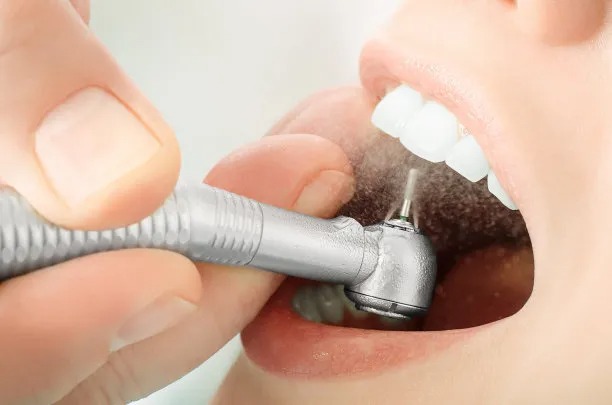Understanding the Impact of Periodontal Disease on Overall Health and Effective Prevention Strategies for a Healthier Smile
Summary: Periodontal disease is not just a dental issue; it profoundly affects overall health in various ways. This article delves into the systemic links between periodontal disease and serious health conditions, highlights effective prevention strategies for maintaining oral health, and emphasizes the importance of a proactive approach to dental care. We will discuss the complexities of treatment and the role of professional interventions alongside personal hygiene practices. Ultimately, readers will gain valuable insights into safeguarding their health through better oral care, creating an opportunity for a healthier smile and well-being.
1. Periodontal Disease and Systemic Health Links

Periodontal disease, characterized by inflammation and infection of the gums and structures supporting the teeth, is increasingly recognized for its connection to systemic health issues. Research has indicated that individuals suffering from periodontal disease may have a higher risk of developing cardiovascular conditions, particularly heart disease. The inflammation caused by periodontal pathogens can lead to systemic complications, including the thickening of arterial walls, which in turn increases the risk for heart attacks and stroke.
Additionally, the links between periodontal disease and diabetes are well-documented. Individuals with poorly controlled diabetes are more susceptible to periodontal infections, and this condition can worsen blood sugar control, creating a vicious cycle. Managing periodontal health is essential for those with diabetes, as effective oral care practices can lead to improved diabetic outcomes.
Moreover, the association between periodontal disease and respiratory health is gaining attention. Bacteria from infected gums can enter the lungs, leading to respiratory diseases such as pneumonia, especially in individuals with pre-existing respiratory conditions. Understanding these connections underscores the importance of maintaining oral hygiene to safeguard overall health.
2. Effective Prevention Strategies for Oral Health
Preventing periodontal disease requires a multifaceted approach that combines personal care and professional dental interventions. First and foremost, maintaining regular oral hygiene routines is critical. Brushing teeth at least twice daily with fluoride toothpaste and flossing between teeth helps eliminate plaque and reduces the risk of gum disease.
In addition to personal hygiene, regular dental check-ups and cleanings are vital for preventing periodontal issues. Dentists can detect early signs of gum disease, provide necessary treatments, and recommend tailored oral care routines. These professional visits offer opportunities for education on proper brushing and flossing techniques, ensuring patients are equipped to maintain their oral health effectively.
Moreover, individuals should be conscious of their lifestyle choices that impact oral health. A balanced diet rich in vitamins and minerals, particularly vitamin C and calcium, promotes healthy gums and teeth. Additionally, avoiding tobacco products and limiting sugars and acidic foods can significantly lower the risk of developing periodontal disease. Cultivating these habits supports long-term oral health and enhances overall well-being.
3. Role of Professional Dental Care
While personal care is important, the role of professional dental care cannot be overstated in the prevention and treatment of periodontal disease. Regular dental cleanings help remove tartar buildup that not even diligent brushing can eliminate. These cleanings are crucial for preventing gum disease progression.
For individuals already experiencing periodontal issues, professional treatments such as scaling and root planing may be necessary. This deep-cleaning procedure removes plaque and tartar below the gum line, helping to restore gum health. Regular check-ins with a dentist ensure optimal monitoring of gum conditions, allowing for timely interventions.
Additionally, advancements in dental technology offer innovative treatment options for periodontal disease. Laser therapy, for example, provides a minimally invasive approach to treating gum disease, promoting quicker recovery and minimizing discomfort. Consulting with a dental professional enables patients to explore these advanced options tailored to their specific needs.
4. Long-Term Benefits of Maintaining Oral Health
Maintaining good oral health yields far-reaching benefits extending beyond a radiant smile. For one, proper oral hygiene can significantly enhance quality of life by preventing painful conditions and ensuring functional teeth. Healthy gums support strong teeth, reducing the risk of tooth loss and complicated dental procedures.
Furthermore, prioritizing oral health can lead to greater overall physical health. By mitigating the risks associated with periodontal disease, individuals can experience improved cardiovascular outcomes, better blood sugar control in diabetics, and lower chances of respiratory conditions. Such benefits reinforce the notion that oral health should be viewed as an integral component of overall health.
Lastly, investing in oral care fosters emotional and psychological well-being. A healthy smile enhances self-esteem, allowing individuals to engage socially with confidence. It is essential to view dental health not as a chore but as a vital aspect of life that contributes positively to overall well-being.
Summary: This exploration into the impact of periodontal disease on overall health emphasizes the vital connection between oral hygiene and systemic wellness. By understanding these relationships, individuals can take effective, proactive steps toward prevention. Emphasizing both personal and professional care, we highlight a comprehensive approach to dental health that not only protects smiles but also promotes lasting overall health benefits.
This article is compiled by Vickong Dental and the content is for reference only



